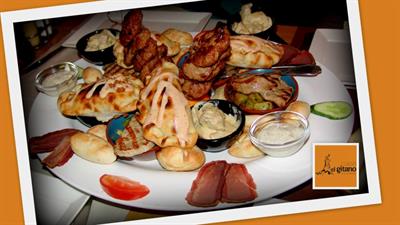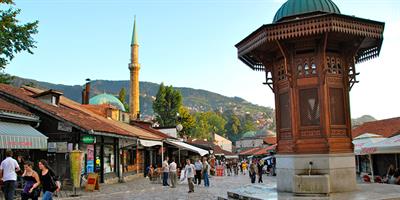Bosnia and Herzegovina is located in southeastern Europe, in the middle of the Balkan Peninsula. It borders with Croatia on the north, west and southwest, with Serbia on the east, and with Montenegro on the southeast. Bosnia and Herzegovina is considered to be a small European country, with an area of 51,129 km2.
Population is 3,867,055 with Bosniaks making up 50.5%, Serbs 31.8%, Croats 14.02%, while other minorities make up about 3.5% of the total population.
The capital of Sarajevo has 492,983 inhabitants.
The economy of Bosnia and Herzegovina is based on natural resources, forestry, water (used for the production of electricity), coal, copper, lead, iron and bauxite ore, chemical and textile industry, as well as agricultural products.
Society
Bosnian-Herzegovinian society is a multiethnic and multi-religious society. More than half of the population are Muslims - Bosniaks, living mainly in the federal part of Bosnia and Herzegovina, in big cities like the capital of Sarajevo, Zenica, the old part of Mostar, Bihać, Travnik, Tuzla, etc.
Characteristics of the BH society are kindness, flexibility, hospitality and benevolent attitude towards tourists, especially Bosniak Muslims toward Arab tourists.
Cities with Bosniak majority population have lots of restaurants that do not serve pork, and have halal meat (also in shopping malls), so there the Arab tourists can freely enjoy delicious local and international cuisine.

CULTURAL HERITAGE
Bosnia and Herzegovina, particularly the federal part, has Ottoman-Muslim historical heritage, especially in the old parts of the city, where many old shops and mosques are located.
As to the culture, it is a mix of eastern and western culture, so the tourists can enjoy in all parts of Bosnia and Herzegovina, especially in Sarajevo, which is called the "European Jerusalem".
